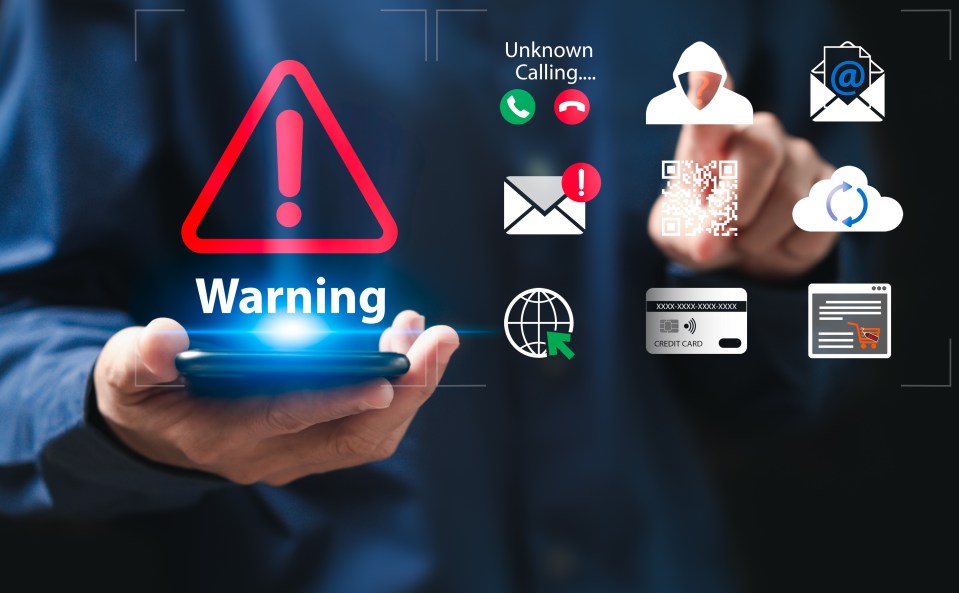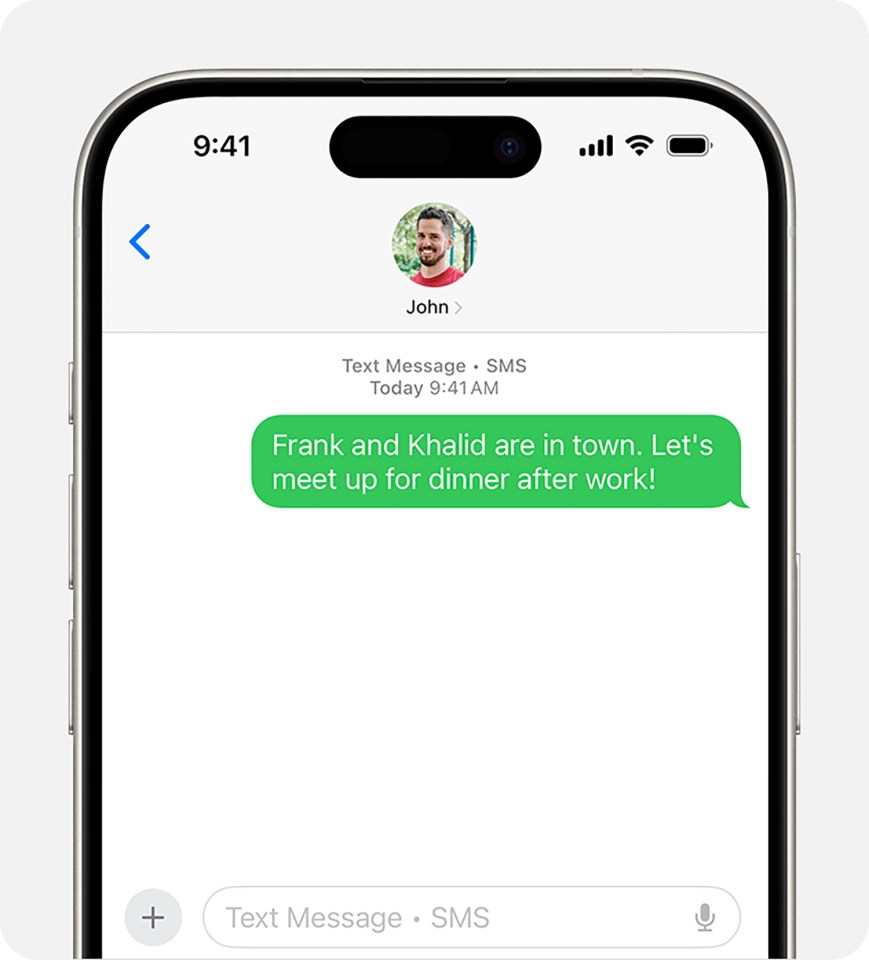TROUBLED daughters in a panic, “innocent” six-digit numbers, and even mysterious texts from yourself – these are the new signs you’re about lose a lot of money, and quickly.
Your bank account could be emptied in an instant, and there might be no way to get the cash back.
It’s not just fake prizes and dodgy bank alerts you have to worry about anymore. Scammers have levelled up, which means you must too.
The Sun has spoken to top security experts who have revealed the seemingly innocent texts and emails that can lay waste to your bank balance.
Crooks are flooding British phones with shockingly effective scam messages – and even a posh iPhone or Android with the best security settings won’t keep you safe.
Worse still, they warn that AI is making these sinister scams even more effective – using them to create convincing cons and carry them out faster and more widely than ever before.
“Cybercriminals are definitely getting better at crafting them,” warned security pro and CyberSmart CEO Jamie Akhtar.
“Although, they’ve had some help,” he added.
“AI has made crafting a convincing scam much easier.”
A 2024 Ofcom report warned that dodgy text messages are the most common type of “suspicious content” that British phone owners typically receive.
And Brits can lose anything from personal data to vast sums of money in the tens of even hundreds of thousands of pounds.
SURPRISING TEXT THREATS
One increasingly common type of scam in recent years is the “Hi mum, it’s me” message.
This usually appears from a new number, and claims to be your son or daughter in trouble.
They’ll say they’re texting from a new number, and need some money quickly – usually to get out of a sticky situation.
It preys on your emotion, and uses urgency to make you act quickly without thinking it through.
Action Fraud revealed this scam had been reported over 1,000 times in a matter of months – with a total cost to victims of £1.5 million.
“Ask yourself: Is this expected? Does it evoke a strong emotion, like fear or excitement? Is there a sense of urgency being pushed?” said KnowBe4 security expert Javvad Malik.
“Understanding the tactics behind the phrases – the emotional manipulation and urgency – is key to staying safe,” Malik told The Sun.
“It’s easy to get caught up in the moment and make a quick, unsafe decision if you’re not aware of these manipulation techniques.”
Another strikingly simple but effective scam involves a six-digit number appearing in your inbox.
This will usually be accompanied by a text from someone saying they’d accidentally sent you their log-in code – and could you pass it back.
It’s a total lie. What they’re doing is trying to log in somewhere as you – and asking for your own two-factor verification code. The one that is supposed to keep your account safe.
Sometimes this scam will also appear on Facebook Marketplace, with buyers or sellings claiming they’ve sent you a code to pass back to them as a form of “verificiation”.
But it’s all a big ruse to bag your log-in codes.
This could allow them to break into your most private accounts, like your email, social media, or even online banking.
Or they could use the code to hijack your WhatsApp account, and then carry out scams on your friends and family while posing as you.
Then there’s a strange type of scam that sees texts arrive on your phone from your own number.
This kind of “spoofing” is designed to lure you into a false sense of security.
They’ll usually try to get you to click a link, which can let them steal your log-ins or install dangerous malware on your device.
Impersonation has also grown in popularity as AI makes it much easier to create a credible message
Brian Higgins
Or it might simply be a trick to get you to reply, allowing them to carry out a more complicated scam – or check that your number is active for future spam campaigns.
FULL LIST OF SCAM PHRASES
“There are many different variants on opening lines for scam texts or emails,” Akhtar told us.
“Most phishing scams use urgent language, set some sort of time limit for whatever it’s asking you to do, and request personal or financial information.
“That’s not to say you’ll never receive a legitimate email asking for those things, but it’s unusual and unlikely to come out of the blue.
BECOME A PRO SCAM SPOTTER

Here’s the official advice from Comparitech security specialist Brian Higgins…
“A few opening methods to be aware of are offering prizes or discounts, these are most effective if they appear to come from a website or platform that you may already use,” Higgins told The Sun.
“It’s always advisable to close the message and visit the site directly to check validity.
“Urgency is a widely used method to launch a scam, telling you that your bank details have been compromised for example and demanding immediate action to avoid losing any money.
“Impersonation has also grown in popularity as AI makes it much easier to create a credible message or request purporting to be from a personal contact asking for cash.
“In all cases you should avoid any links or actionable inserts and attachments in any message; pdfs, unsubscribe links, websites etc.
“You can forward suspicious emails to the National Cyber Security Centre at report@phishing.gov.uk and likewise any text messages for free by forwarding to 7726.”
Picture Credit: Getty Images
“If you receive any email with one or more of these things, it should immediately put you on guard.”
Here’s the official list of dangerous text scams from CyberSmart, obtained exclusively by The Sun:
- Low-Interest or No-Interest Credit Card Offers: Texts promising exclusive credit card deals with suspicious links
- Account Verification Requests: Messages asking to verify Apple ID or other tech accounts, often with phishing links
- Free Bitcoin Offers: Scams offering free cryptocurrency or threatening blackmail demanding bitcoin payments
- Family Emergency Scams: Texts claiming a family member is in urgent trouble and requesting money transfers immediately
- Account Reactivation Alerts: Messages warning that your account has been hacked or suspended, urging you to click links or call numbers provided
- New Billing Statement or Payment Confirmation: Fake notifications about billing statements or payment receipts with malicious links
- Texts from Your Own Number (Spoofing): Scam texts appearing to come from your own phone number to trick you into clicking links or responding
- 2FA Code Requests: Messages asking for two-factor authentication codes to hijack your accounts; legitimate companies never ask for these codes
- Bank Suspicious Activity Alerts: Texts warning about unusual activity on your bank account, prompting you to verify details via a link or phone number
- Prize or Vacation Redemption Fees: Messages claiming you won a prize but need to pay a fee to claim it
- Sextortion Scams: Threatening to release compromising images unless payment is made, often targeting younger victims
- Fake Customer Support on Social Media or Text: Scammers posing as support staff offering help but sending malicious links
Akhtar warned that there are “thousands upon thousands” of variations on these scams.
But that in 2025, the swindles included in this list are now “all extremely common”.
If you think you’ve been a victim of online fraud, you can contact Action Fraud on 0300 123 2040. If debit or credit cards, online banking, or cheques are involved then you should contact your bank first.












